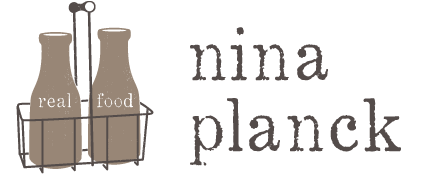Farm Boys
2/1/2024
Zucchini at Wheatland Vegetable Farms
In an eventful and cold winter week, we have logged too many miles and too much worry. I have devoted my time to sleeping and to making pot roast and two-chicken soup, rather than writing for you. I’ve also been a little blue this month. The garden is brown and very still. I became so starved for plants that I bought corner-deli tulips, in pinks and whites. But I am hopeful. A sickly hellebore brought inside has bloomed, modestly. It appears that the Amaryllis, with stalks three feet tall sporting four giant, megaphone salmon-colored blooms one year ago, will rebloom in a few days. This will be my first successful rebloom of these most pleasing giant bulbs. What marvels they contain. If I’m out of the house on another New England car trip when the fat buds open, I will be begging the home team for photographs.
Speaking of the home team, I bring you the writing of two literary stars in the Planck-Kaufelt family. My father, Chip Planck, farmed vegetables on a large scale with my mother Susan for 35 years, and now has what I call a micro-farm, with teensy quantities of equipment, crops, and chickens. Many of those farm-years, Dad spent on a tractor. Sitting on a tractor for hours, watching the furrows multiply or the grass and pigweed disappear or the tiny tomato transplants splotch out a row of green, is a solitary sport. For the right mind, it’s meditative.
Dad spent many of those thousands of tractor-hours writing poems. “Farm Boys,” which I offer today, is one of my favorites.
I have honored my parents by starting farmers’ markets, and honored my mother by writing books about real food and babies. Last night, I asked my husband, Robbie, how to introduce my Dad and his poetry. Maybe something free-form, he said. Well, that’s not my strong suit. Not to worry. Robbie sent me his own poem about Chip Planck.
Dad’s good friend Jon Margolis died on January 29. He too was a great writer, a wit, and a lovely guy. May God comfort the mourners.
Father-in-Law
– Robert Ian Kaufelt
Farmer, poet, scholar;
hands gnarled, manner mild;
the Whitmanesque ways of a Southern Transcendentalist
Self-reliant, secure in Nature;
trucks without doors,
runaway tractors:
hay bales and cracked slat baskets;
Man of the soil,
son of the South.
Teacher-father
Tomatoes, corn,
barn and workshop;
tools and belts.
Laboring in the hot sun.
Lover of music and women;
friend to beautiful machines;
fan of mechanics.
Always working;
workers working,
playing, singing,
farmers sweating,
lifting, laughing.
Sowing, reaping,
never weeping.
Farm Boys
– Chip Planck
Get to heave dense green-gold bales high on wagons,
stack them with the skill of dry wall masons,
and ride up on the load back to the barn,
like returning soldiers astride their tanks.
(This is fun even with no girls watching.)
In the freshness of dawn they work, while we sleep.
In the softness of dusk they work, while we sup.
Seedlings cover the earth for them.
Creatures faster and stronger obey them.
On machines of beautiful usefulness,
They do landscapes for the neighbors, scale 1:1
Neither dancers nor athletes,
yet they know the exhilaration and exhaustion
of spinning with the sun and wrestling the earth.
They are bitten, thrown, soaked, parched –
before sitting down to lunch.
Looking up, from row of beans or swath of grain,
they see fathers, brothers, boarders:
Each needed and known, loved or not.
Looking up,
they see plain sky.
When not stumbling from bed
to shoot coons in the hen house
or run down escapees from poor fencing,
they sleep well.
On Saturdays, hunched over lunch counters,
their forearms bright with scar tissue
support hands with missing digits
replaying heroic fuck-ups.
On Sundays, their elders look down
and pronounce them salt of the earth.
Each October, the satisfaction of a clear reckoning.
Each March, a fresh brown slate
And yet, when the first corpse comes home
and the loud speakers begin hectoring
about shame and glory,
They flock to sign on,
pressing into relieved crowds
of clerks nervous of their manhood,
of students in love with abstract blood.
Honored if not rewarded,
well-used though not unmarked,
Why would they exchange
a working relationship with creation
for a murderous relationship to man?
Chip and Susan Planck


